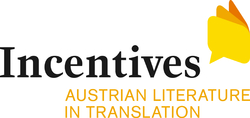- Das Haus
- Newsletter
- Service
- Publikationen
- Veranstaltungen
- NEU Livestream
- Livestream-Archiv
- Ausstellungen
- Buchmagazin & AutorInnen
- AutorInnen
- AUFTRITTE
- Rezensionen Buch
- Rezensionen 2019
- Rezensionen 2018
- Rezensionen 2017
- Rezensionen 2016
- Rezensionen 2015
- Rezensionen 2014
- Rezensionen 2013
- Pressespiegel 2000-2010
- AutorInnen A
- AutorInnen B
- AutorInnen C
- AutorInnen D
- Autorinnen E
- AutorInnen F
- AutorInnen G
- AutorInnen H
- AutorInnen I
- AutorInnen J
- AutorInnen K
- AutorInnen L
- AutorInnen M
- AutorInnen N
- AutorInnen O
- AutorInnen P
- AutorInnen Q
- AutorInnen R
- AutorInnen S
- AutorInnen T
- AutorInnen U
- AutorInnen V
- AutorInnen W
- AutorInnen Z
- Rezensionen Sachbuch
- Verlage
- Dank an Verlage
- Impressum
- Incentives
- Bibliothek & Sammlungen
- Katalogsuche
- Partnerinstitutionen





FÖRDERGEBER
PARTNER/INNEN

 Sandra Gugic: Astronauten. [Astronauts] She stares out the window, her body tense. The camera lies on her lap, but she doesn’t touch it, although the panorama is different to usual. We have left the city. To the right and left the street is lined by trees and fields, the landscape remains flat, an apparently endless straight line, which after a while changes into a piece of woodland. I could press down hard on the pedal, accelerate even more, always straight ahead, then there is the idea, like an idée fixé, that sooner or later we will end up at the point we started from anyway. The light accelerates with us, flickers between the rows of trees, mixing in orange-red patches between the shades of green. Every second contains the possibility of breaking the silence, but where to begin. Things, sentences, days have gone missing, only to reappear minutes, hours, days later, in places I would never have expected. (pp. 84 – 85)
|
| Veranstaltungen |
|
Sehr geehrte Veranstaltungsbesucher
/innen! Wir wünschen Ihnen einen schönen und erholsamen Sommer und freuen uns, wenn wir Sie im September... |
| Ausstellung |
| Tipp |
|
OUT NOW: flugschrift Nr. 35 von Bettina Landl
Die aktuelle flugschrift Nr. 35 konstruiert : beschreibt : reflektiert : entdeckt den Raum [der... |
|
INCENTIVES - AUSTRIAN LITERATURE IN TRANSLATION
Neue Buchtipps zu Ljuba Arnautovic, Eva Schörkhuber und Daniel Wisser auf Deutsch, Englisch,... |